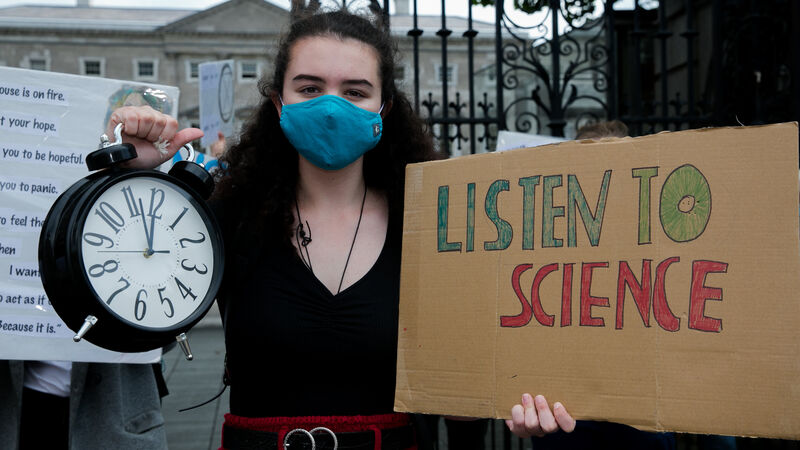Pádraig Hoare: We cannot bury our heads in the sand - action on climate change is long overdue

Climate Activist Beth Doherty from Fingal outside Leinster House following the announcement of the first instalment of the IPCC's sixth assessment report.
In 1945, the relief at the end of the conflict that had ravaged a world was temporary. For there lay an even greater and more daunting challenge ahead. Impossible even, to most eyes.
At the conclusion of World War II, how could millions of refugees be given shelter, where would the homes come from to give the displaced, where was the steel and other valuable commodities to rebuild decimated railways and ports, where were the crops to feed starving populations?
CLIMATE & SUSTAINABILITY HUB















